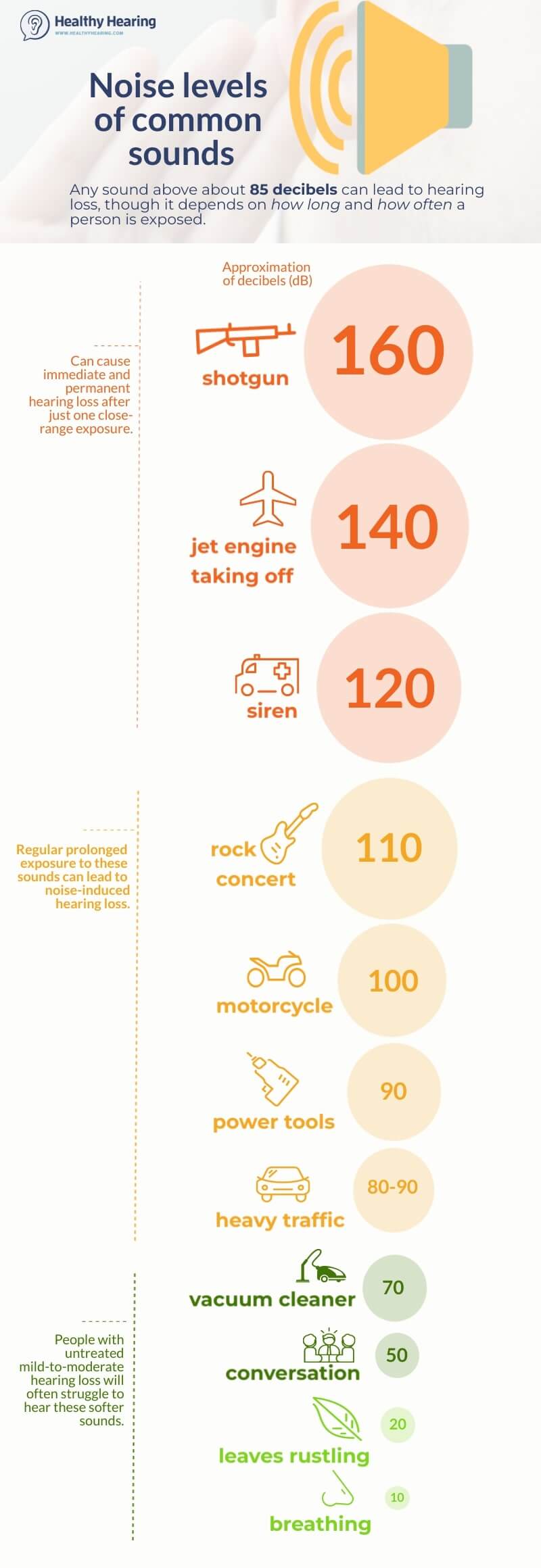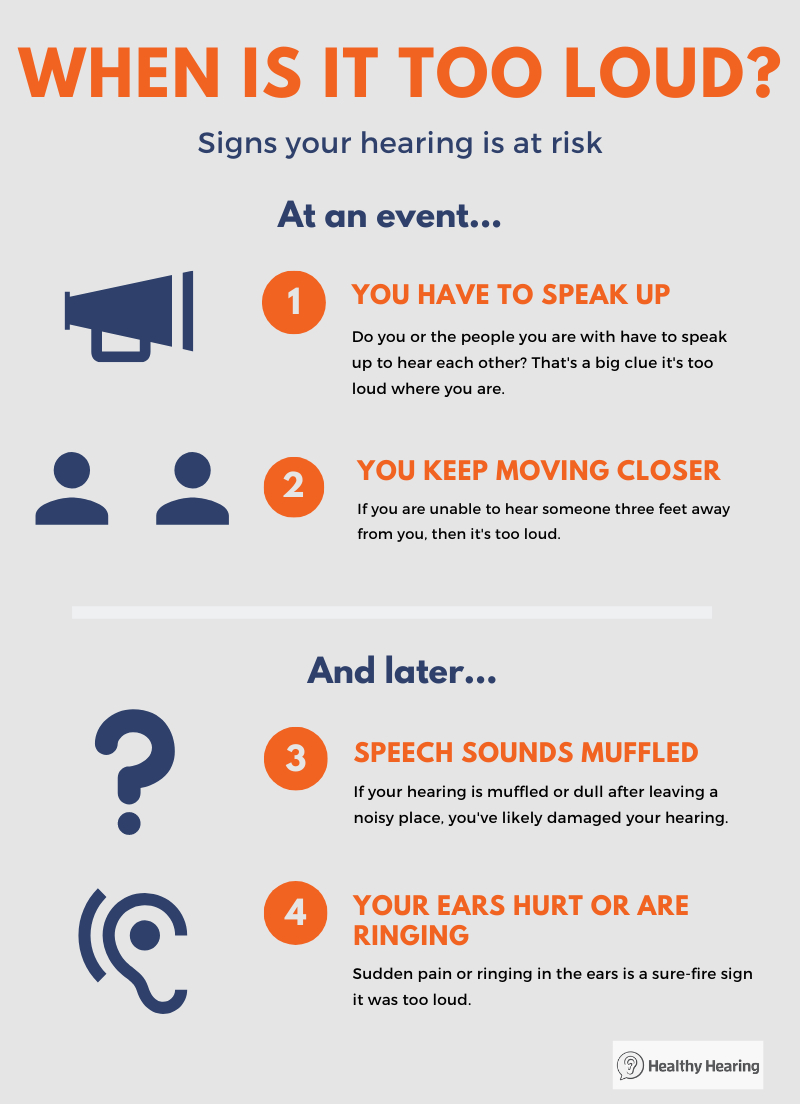|
www.HealthyHearing.com |
What is a decibel?Decibels are used to measure sound levels. Here's how they work.
Contributed by Joy Victory, managing editor, Healthy Hearing Key points:
The soft whisper of a grandchild sharing a secret, the loud blare of a fire truck's siren as it enters the intersection, the soothing melody of your favorite song on the radio. How do we measure the intensity of the sounds they make? Behold the humble decibel, a logarithmic way of describing a ratio between things like power, sound pressure and voltage. Decibels measure sound intensity (amplitude)Sound is energy that travels in waves. It can be measured in two ways: frequency and amplitude.
Decibels increase exponentially'A 10 db increase means 10 times louder, a 20 db increase means 100 times louder'Decibels are measured logarithmically. This is a way of counting or measuring something that increases rapidly, or exponentially. For example, every increase of 10 dB on the decibel scale is equal to a 10-fold increase in sound pressure level (SPL). Near silence is expressed as 0 dB but a sound measured at 10 dB is actually 10 times louder. If a sound is 20 dB, that's 100 times louder than near silence. This is important to understand, as it helps you understand just how loud something really is when looking at dB charts. Decibel levels of common soundsOn its own, though, being told that something measures "85 dB" isn't particularly useful if you aren't a hearing professional. We've put together this chart to show you roughly how common noises measure on the decibel scale. As you can see, firearms are significantly louder than heavy city traffic—an increase from 85 to 150 dB is exponentially much louder. That's why firearms are known to be considerably harmful to hearing, and why hearing protection is a must to avoid developing shooter's ear. 
Measuring hearing loss in decibels: How does it work?Hearing loss is measured, in part, by the lowest level of decibels you are capable of hearing. For example, a person with normal hearing can hear rustling leaves and water dripping (~10 dB), but a person with mild hearing loss could not. The other factor is frequency, or pitch. Some people lose their hearing ability in higher frequencies, and some in the lower frequencies. There are many possible combinations of decibel and frequency loss, all of which can be plotted on an audiogram showing a person's degree of hearing loss, which range from mild to profound: .jpg)
would struggle to hear sounds quieter than about 50 dB. More: How we hear: A step-by-step explanation Decibels and noise-induced hearing lossDecibels might be just another measuring stick if it weren’t for the damaging effects loud noise inflicts on our hearing. Whether it’s a one-time exposure to a loud explosion or daily exposure to an excessively noisy workplace or hobby, our hearing suffers the consequences. This type of hearing loss is known as noise-induced hearing loss (NIHL). The National Institute on Deafness and Other Communication Disorders (NIDCD) estimates approximately 15 percent of Americans between the ages of 20 and 69 have hearing loss that may have been caused by exposure to loud noise at work or through leisure activities. How loud is too loud?If you're in a noisy place and worried it may lead to hearing loss, there are two quick ways to measure the situation: One, use a smartwatch or smartphone sound meter app. Or, two, follow this general 4-step rule of thumb for knowing when loud is too loud:
People with hearing loss still need to be carefulThose who wear hearing aids should be mindful of dB levels in their environment, too. Hearing aids and other devices amplify sounds in the environment, so your remaining hearing is susceptible to noise-induced hearing loss just like everyone else’s. You risk losing your remaining residual hearing when around loud sounds. While it might be tempting to turn your devices off thinking that they will serve as protection, guess again. Most don’t fit snugly enough in the ear canal to block harmful sound and, when they are turned off, can prevent you from hearing desirable sounds — such as emergency vehicles, concert music, or the sporting announcer. Your best bet is to work with a hearing healthcare professional to identify the appropriate hearing protection for the type of activity you’ll be participating in or attending. Wearing the proper hearing protection will allow you to wear your hearing devices safely and still hear activity around you. Joy Victory, managing editor, Healthy Hearing
|
Featured clinics near me
Earzlink Hearing Care - Reynoldsburg
7668 Slate Ridge Blvd
Reynoldsburg, OH 43068

Find a clinic
Need a hearing test but not sure which clinic to choose?
Call 1-877-872-7165 for help setting up a hearing test appointment.



 Joy Victory has extensive experience editing consumer health information. Her training in particular has focused on how to best communicate evidence-based medical guidelines and clinical trial results to the public. She strives to make health content accurate, accessible and engaging to the public.
Joy Victory has extensive experience editing consumer health information. Her training in particular has focused on how to best communicate evidence-based medical guidelines and clinical trial results to the public. She strives to make health content accurate, accessible and engaging to the public.